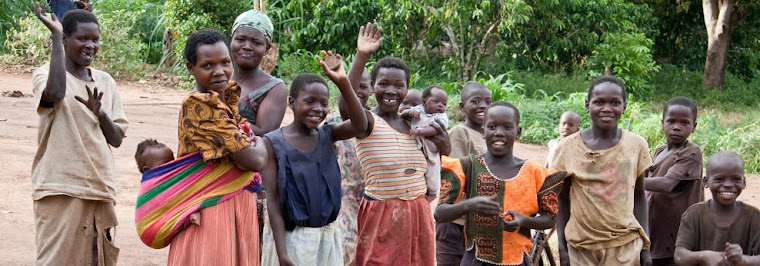Despite still not having a primary project/assignment/objective at my organization, I have pursued a number of secondary activities, some of which I believe will ensure long-term sustainability in the community and all of which I hope will build people's capacities to improve and positively benefit their livelihoods.
Leading a Health Group at the Dispensary: Every Tuesday and Thursday, Rose and I will be leading a Health Group, coteaching patients about 9 different health topics: 1) Malaria prevention, 2) Water sanitation/purification, 3) Personal hygiene/handwashing, 4) Mental health/wellness, 5) Family planning, 6) Healthy eating/nutrition and lifestyle, 7) HIV/AIDS prevention, 8) Incoming-generating activities (IGA's), and 9) The "role" of motherhood. My goal for the group is not just to teach/give the information to the attendees, but also to provoke critical thinking, Q&A, and discussion. For example, if I were leading a session on Malaria prevention, I may first ask questions such as: What is malaria? How is malaria transmitted? How can malaria be prevented? If you do get malaria, what is the first thing that you should do? To make the project sustainable, nurses at the Dispensary are taking turns leading sessions with Rose and I. Not only does this increase their comfort level at talking about health issues to larger audiences, but also it encourages an exchange of learning across multiple parties. The nurses can teach a health topic to the patients, for instance, that I know nothing about, and vice-versa, or the attendees can surely teach new things to the leaders. I am excited to see if/how the group empowers community members to make positive changes in their own lives.
Coteaching S3 English and Geography: After a month hiatus, school just restarted last week. Since I cotaught the S3 students at the end of 1st term, I chose to remain teaching S3 English and Geography, two days and one day per week respectively. As I wrote in a previous post, I am not necessarily introducing new material to the students, but rather serving as a teacher's aid/student mentor; creating weekly worksheets to provoke critical thinking and Q&A; bringing in maps, pictures, and other teaching resources to class to enhance the quality of learning; answering questions about the class topics taught/American culture (I never get a shortage of questions); and hopefully serving as a good male role model to the students. Personally, it's been culturally enriching interacting with the students, both on a teacher- and a friend-level, on a daily basis, and has made me grateful for the school resources - computers, a library full of books, school supplies, sporting fields/equipment, and a cafeteria - I enjoyed (well, not always the cafeteria food) in elementary school, middle school, high school, and college.
Promoting Little League Baseball to Ugandan Youth: A few weeks ago, I had the pleasure of attending the Boys 12-13 years-old camp at Uganda Little League Baseball (an NGO) near Mpigi Town. The goal of the NGO is to promote baseball and softball to Ugandan youth. Amazed by the players' talent and ability, some of whom were just introduced to baseball weeks before, I became highly enthused to promote baseball and softball to the youth in Kachumbala. Ultimately, I'd like to form a team to compete against other teams that attended the camp (from Lugazi, Jinja, Soroti, and Kampala) in the region. First off, using Father Okurut's projector, I plan to introduce the sport to youth by showing a baseball/softball movie. Any movie ideas?
Volunteering at an Orphanage: Last month, I visited an orphanage with the hope of volunteering there weekly. I chose not to volunteer at that particular orphanage because the fit wasn't right, but I'm still hoping to find an orphanage (not religiously-affiliated) in the area at which I can volunteer once or twice per week.
Repairing the Community Borehole: As I wrote in a previous blog post, the community borehole, on the Kachumbala Mission side, has not been working since I arrived at site. With no tap water, residents are forced to walk 1-2km to fetch water from a community well, lugging a full jerry can on their way back home. Before arriving in Kachumbala, workers from Kampala apparently tried to repair the borehole, but were unsuccessful in their attempts. Currently, I am trying to get the team to come back to Kachumbala to determine whether the borehole can realistically be repaired or if a new one needs to be dug. Regardless of the option, it will cost money. As such, I am trying to mobilize a few community members to take ownership of the project by spearheading the request for donations from the rest of the community.
"Libraries for Life - Peace Corps Uganda": As soon as I'm done finalizing which volunteers will participate in the "Libraries for Life - Peace Corps Uganda" book project, I will send out more information about the project via email, and how you can contribute to the project's cause (the link is https://www.booksforafrica.org/donate/to-project.html, under the Uganda subheading). Ultimately, the project not only aims to build libraries in community schools, but also to train preidentified teachers in library management, to teach students how to use a book's index and table of contents (the majority of my students have never used a textbook before), and to create an afterschool reading club to encourage reading as a fun yet educational leisure activity.
As always, thanks for reading. Congratz to my Bruins for advancing to the Stanley Cup!!

No comments:
Post a Comment